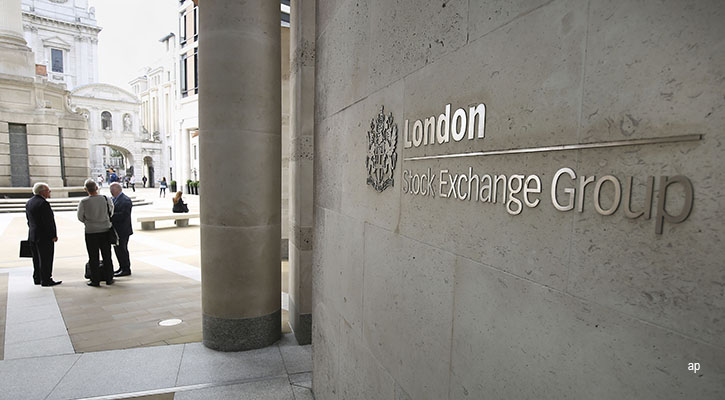
Nearly four years after the suspension of Woodford Equity Income rocked the UK fund industry, investors in the flagship fund have been offered a £235 million compensation package by the City regulator.
The Financial Conduct Authority (FCA), which regulates large sections of UK financial services, said today that fund administrator Link Fund Solutions would pay £235 million in "redress" to the more than 300,000 investors in the fund, which was suspended on 4 June 2019. The move is the first taste of the watchdog's long-awaited probe into the saga, which attracted the attention of MPs on both sides of the political divide and even led to calls for Andrew Bailey's incoming role as Bank of England governor to be halted. The full FCA report is due in July.
Bailey had been heavily criticised at the time, having led the regulator when the scandal kicked off, but today his successor is putting significant blame at the door of Link itself. For its part, Link has already been hit with multiple legal claims from law firms acting on behalf of angry investors, who claim the fund administrator made "critical mistakes and errors in managing Wooford Equity Income Fund's liquidity."
Question: I’m an investor, when will I get my money?
As ever with an episode like this, the compensation process is not straightforward. Let’s start by separating that out from the investigation’s findings. LFS, part of Australia’s Link Group, is being sold to Ireland’s Waystone Group, generating £140 million. The payout envisaged by the FCA depends on this going through and that must be approved by investors and the courts. The legal element involves a scheme of arrangement to resolve LFS’s liabilities relating to this case. If the scheme is not approved, Link Group will not make the £235 million payment – and the redress would depend on a legal case between LFS and the FCA. So the deal is by no means done.
Q: Has Link Group admitted liability?
No. "Link Group considers that it has no legal responsibility for the obligations of LFS including losses caused to investors in the Woodford Equity Income fund", the FCA said. The difference between the sale of LFS and the £235 million pot has been provided voluntarily by Link Group. According to the FCA: "Link Group did not have any involvement in LFS’s role as authorised corporate director of the WEIF. The FCA acknowledges the cooperation of Link Group and LFS throughout the enforcement process, and in particular, in the voluntary contribution by Link Group".
Q. This seems very amicable. What’s the alternative?
If the scheme is not approved, the FCA will continue with its "enforcement action" using its statutory powers, which it can exercise on companies and errant individuals. That would entail a penalty of £50 million and a likely legal case between the regulator and LFS. But if the scheme is approved, that effectively ends the FCA investigation into LFS.
Q: What has the FCA actually concluded about LFS?
LFS was "authorised corporate director" of the fund, so day-to-day management decisions were delegated to it. Crucially, it made the decision to suspend the fund in June 2019, which Woodford himself contested at the time. It's widely believed he still thinks it was wrong.
"This was Link’s decision and one I cannot accept, nor believe is in the long-term interests of Woodford Equity Income fund investors," he said in 2019.
The FCA’s investigation is damning, however, and worth quoting at length. "LFS had responsibility for ensuring the WEIF operated with appropriate liquidity risk management and controls, and that all investors in the fund were treated fairly. The FCA considers LFS made critical mistakes and errors in managing WEIF’s liquidity with the result that the fund failed to have a reasonable and appropriate liquidity profile from September 2018...
"By 1 November 2018, LFS’s failure to have properly measured the liquidity of the WEIF meant that investors leaving the fund from that point onwards benefited disproportionately from access to the most liquid assets in the fund which were sold. The FCA considers that those investors who continued to hold investments in the WEIF at the time of its suspension were treated unfairly because this left them with a disproportionate share of the remaining assets which were more illiquid."
Q. I have already received compensation. Is this different?
Yes, this is in addition to the return of funds following the winding up of Woodford Equity Income, which was suspended in June 2019 and shut down in October 2019. The fund’s assets were effectively sold off and investors have received some (but not all) of their original investments back, a process that is still ongoing as some of the less liquid assets have proved harder to sell. A useful explainer on how that process has unfolded slowly can be found here in "Woodford Investors Still Waiting to Get Their Money Back".
Q. I’ve joined a legal action against LFS. Is this connected?
This is so far unclear. A few thousand investors have employed law firms Leigh Day, Harcus Parker and Wallace (all separate firms) to make claims against LFS, which is expected to present its defence in May. If the FCA proposal goes ahead, investors may have received some compensation already by the time the cases are settled – and that is likely to have a bearing on the (larger) compensation claims investors are making through the courts. At this stage, it’s hard to say how this will play out. Legal cases in finance can drag on, as we know.
Q. Does this wrap up the Woodford saga?
You could perhaps say it's the beginning of the end. The approval of the current scheme would be a milestone. Whether that provides "closure" for investors caught up in the mess remains to be seen. The FCA will provide more details of the compensation scheme - and its full report into the fund collapse - in July.
“This has been a long, drawn-out saga. Investors have been through the mill, but there are still a few hurdles to get near a final outcome," says Jonathan Miller, Morningstar's head of manager.
Q. What actually happened in 2019?
A period of poor performance meant investors started to pull money out of the once multi-billion pound fund. Ordinarily this isn’t a terminal issue – we cover flows every month and funds (and asset managers) come in and out of favour. But this felt different. Stories started to appear about the fund’s exposure to illiquid assets and a snowball effect started. Many of the fund’s largest investors (such as Kent County Council) wanted their money back.
Our full coverage of the episode can be found in this special report.
Q: What’s the back story?
Neil Woodford was a "star" fund manager fêted by investors, the media and industry insiders. His equity income fund grew into one of the UK’s largest. He originally managed a fund at Invesco, which provided stellar returns, and he struck out on his own to set up Woodford Investment Management in 2014. He also set up a more speculative vehicle, the Patient Capital Trust, a closed-end fund which backed unlisted and illiquid stocks. That was sold to Schroders.
The fund portfolio originally consisted of equity income stocks, as the name suggests. These type of companies tend to be liquid, with low volatility and with predictable income streams. They also tend to be large caps in the FTSE 100 so are easy to value, buy and sell. But Woodford started to expand the portfolio into less liquid companies, particularly in the biotech and pharma sector, which became an issue later down the line when the fund was wound up. Some of his bets on riskier companies, such as Amigo Loans, also backfired.





























